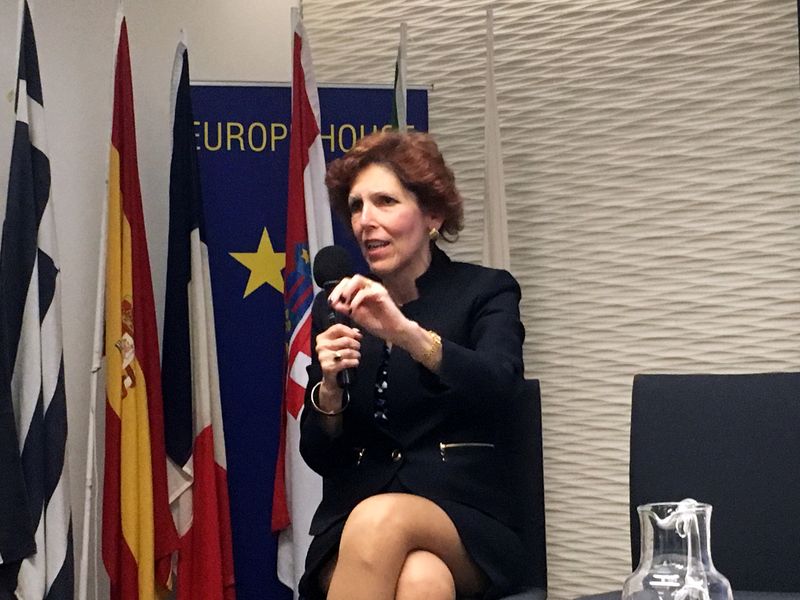Investing.com’s stocks of the week
By Michael S. Derby
(Reuters) -Federal Reserve Bank of Cleveland President Loretta Mester said on Monday that still-strong levels of underlying inflation pressures are pointing the central bank toward more rate rises.
“The economy has shown more underlying strength than anticipated earlier this year, and inflation has remained stubbornly high, with progress on core inflation stalling,” Mester said in a virtual speech before a University of California, San Diego forum.
“In order to ensure that inflation is on a sustainable and timely path back to 2%, my view is that the funds rate will need to move up somewhat further from its current level and then hold there for a while as we accumulate more information on how the economy is evolving," she said.
Mester, who is not a voting member of the rate-setting Federal Open Market Committee this year, did not offer a time table for action.
When the Fed met last month it paused its rate rise campaign to take stock of where the economy stood after just over a year’s worth of aggressive rate rises. It penciled in more increases for this year and officials such as Fed Chair Jerome Powell and New York Fed leader John Williams have over recent days pointed to the strong probability of more action to help bring inflation back to target.
Speaking with reporters after her remarks, Mester declined to say what sort of action she'd like to see the Fed take at its late July policy meeting while taking in incoming data over the next few weeks.
But she did acknowledge she would have been down for a rate hike last month had her colleagues voted in favor of one.
“If it was just me alone, I would have moved the rates up but I understood the rational for not moving in June,” given the importance of matching market expectations, Mester said. She noted that her outlook for the federal funds rate, which is now between 5% and 5.25%, matches or is slightly above officials’ collective view the central bank will raise rates another half percentage point by year’s end.
In her remarks, Mester said Fed actions were working to restore balance in the economy. But she also noted that inflation and the job market remain out of whack relative to where they need to be to cool price pressures.
“Core measure indicates that inflation is stubbornly high and broad-based,” Mester said.
The official added, “when the economy reopened, labor demand well outpaced labor supply, putting upward pressure on wages and price inflation.” She noted, “progress is now being made in bringing demand and supply into better balance, but it is slow progress and demand is still outpacing supply.”
Mester also said wage gains for Americans remain too high in a time of low productivity, which means those gains must moderate to achieve 2% inflation.
Mester also said in her speech that business leaders are reporting more optimism over the future and said “most think there won’t be a recession this year, and many think that, even if demand slows down some more, a recession will be avoided or will be very mild.”
